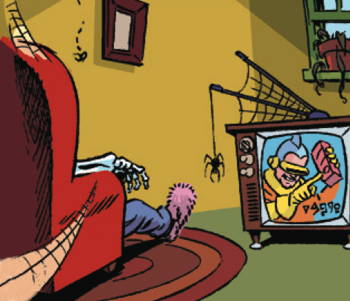April 2021
April 25, 2021
A Horn for Airplanes
Invented by Charles Adler, Jr. of Baltimore and granted a patent in 1947.I imagine the last thing you'd want to hear as your flight is cruising at 30,000 feet is the pilot suddenly honking the horn.
Though, of course, the horn was intended for small planes, not passenger jets.
Adler himself used it to nag his wife by flying low over his house and honking the horn so that she'd know to start preparing his dinner.


Massillon Evening Independent - Aug 1, 1946
Posted By: Alex - Sun Apr 25, 2021 -
Comments (3)
Category: Inventions, Patents, Air Travel and Airlines, 1940s
Martian Hop
The Wikipedia page.
Posted By: Paul - Sun Apr 25, 2021 -
Comments (2)
Category: Aliens, Fads, Music, Spaceflight, Astronautics, and Astronomy, Science Fiction, 1960s, Cacophony, Dissonance, White Noise and Other Sonic Assaults
April 24, 2021
Widow wills millions to help pay U.S. debt
In 1960, the late Mrs. W.L. Clayton reportedly left $25 million in her will to the U.S. government to help pay down the national debt.The amount she left for this purpose may have been unusually large, but it turns out that leaving behind money to help pay off the national debt isn't unusual. The Associated Press reports that, every year, the U.S. government receives about $1 million in bequests to help with the national debt. And since 1961, it's received $100 million.
However, the AP also notes that all these bequests, though well-intentioned, are "pointless" and "essentially, useless". This isn't just because the amounts are like a drop in the ocean compared to the size of the national debt. It's because: "The donations are recorded on the receipts ledger of the federal government’s general fund. So, rather than actually paying down the national debt, these donations just reduce the amount of money our government will borrow."

Los Angeles Times - Jan 30, 1960
Posted By: Alex - Sat Apr 24, 2021 -
Comments (0)
Category: Government, Money
Arnold Hutschnecker’s Juvenile Criminality Tests
His Wikipedia page is here.Not mentioned is the legal charge at age 89 of seducing a patient.
Interesting details of his relationship with Richard Nixon in this obit.

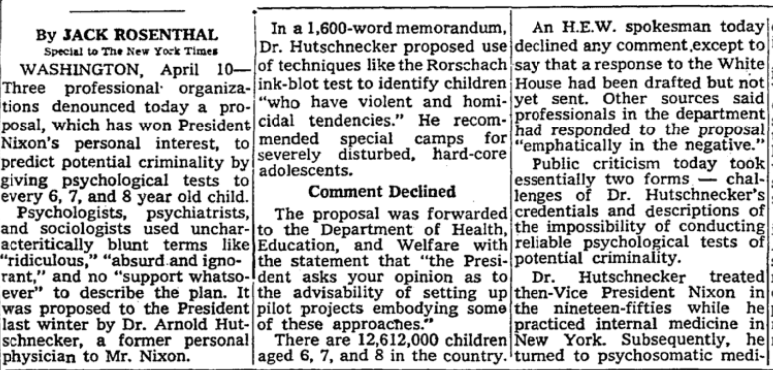
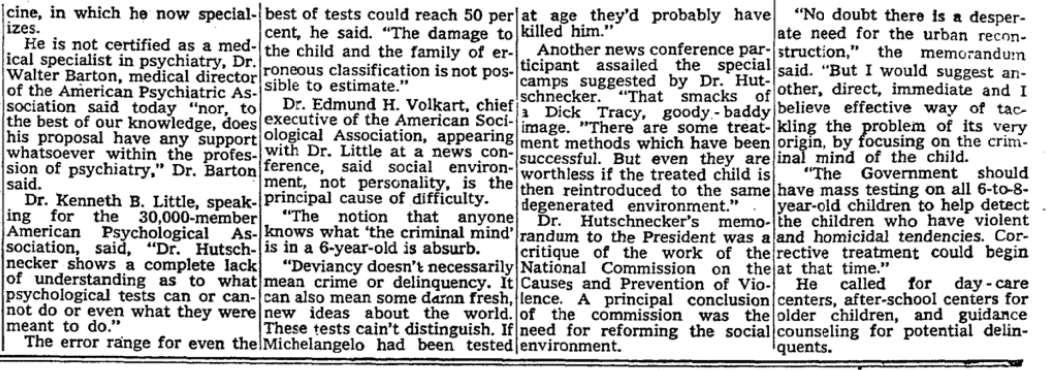
Posted By: Paul - Sat Apr 24, 2021 -
Comments (0)
Category: Crime, Psychology, Children, 1970s
April 23, 2021
The Stimulator
The Stimulator, which sold for $79, promised to cure headaches, allergies, swollen joints, backaches, and more. It did this by delivering low-voltage electrical shocks to whatever body part was hurting.However, the FDA shut down its manufacturer in 1997 noting that the device was actually a modified gas-grill igniter which cost about $2 to make.
More info: Museum of Quackery


Greenville News - Jan 21, 1997
Posted By: Alex - Fri Apr 23, 2021 -
Comments (2)
Category: Patent Medicines, Nostrums and Snake Oil, 1990s
Mystery Illustration 100
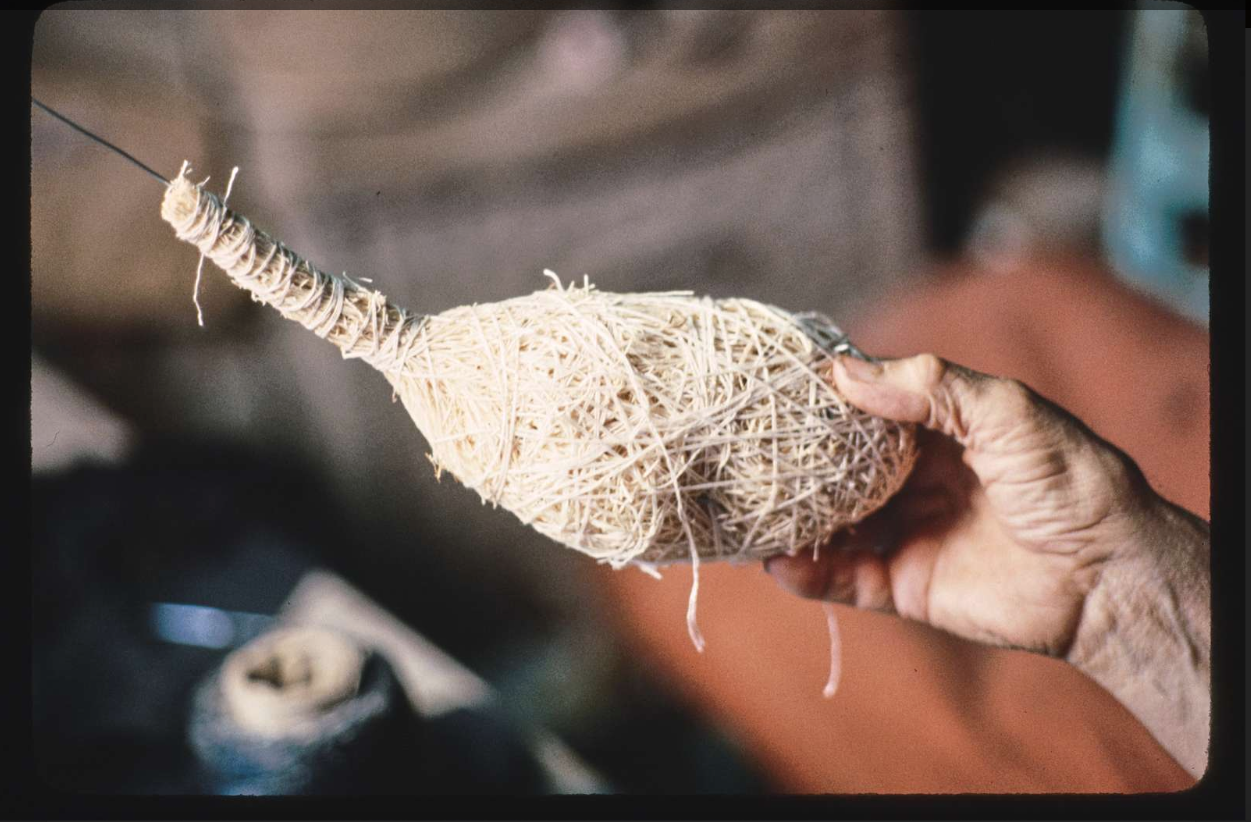
This is the armature for...something. What?
The answer is here.
Or after the jump.
More in extended >>
Posted By: Paul - Fri Apr 23, 2021 -
Comments (0)
Category: Technology
April 22, 2021
Yu Qian’s Tower of Teeth
We've previously posted about the Tooth Stone of Elkhart, Indiana, which is a large, concrete block full of human teeth.Along similar lines is the Tooth Tower of Yu Qian in Beijing. It's a large sculpture made out of 28,000 human teeth.
If I come across any more sculptures made out of human teeth, I'll be sure to add them to this list.

Elko Daily Free Press - July 28, 1995

Posted By: Alex - Thu Apr 22, 2021 -
Comments (2)
Category: Art, Teeth
The Ettl Enlarging Machine
I would love to see a picture of this gadget, but cannot find one online. I assume all such work today is done easily on computers.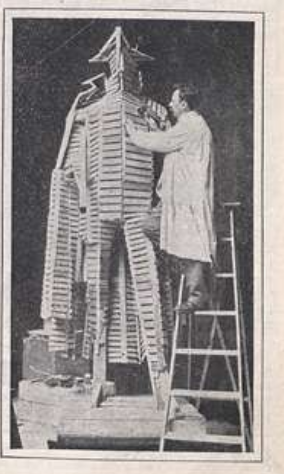
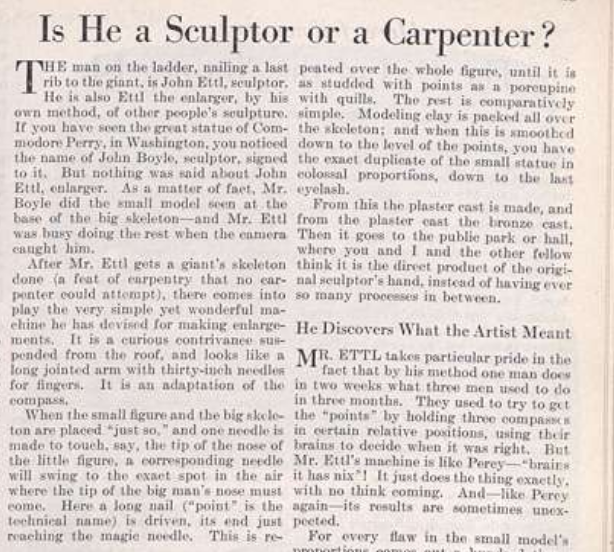
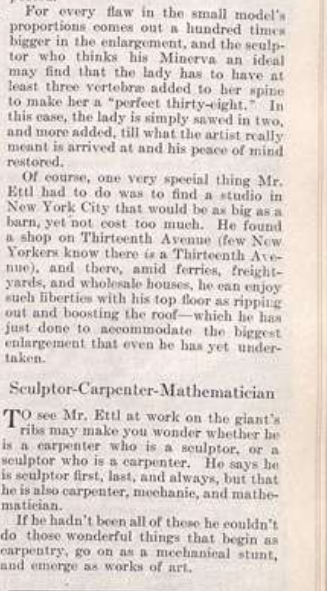
Source.
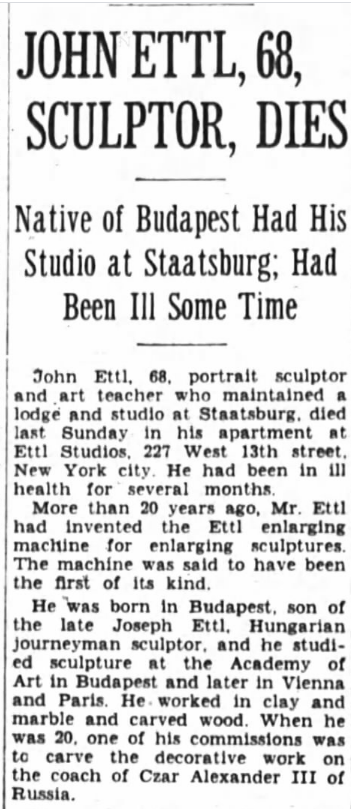
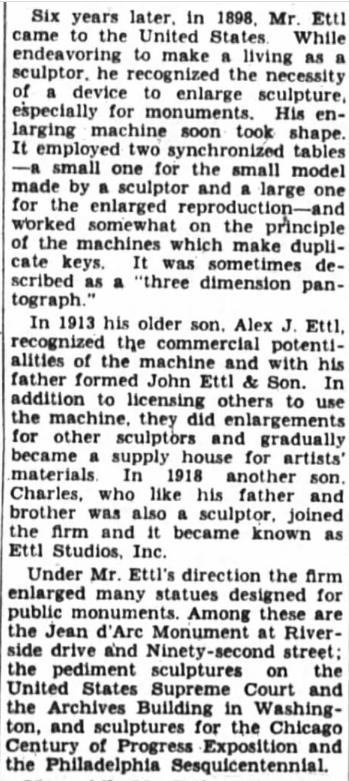
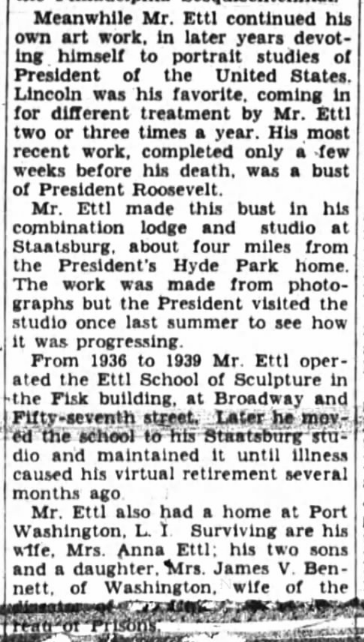
Posted By: Paul - Thu Apr 22, 2021 -
Comments (3)
Category: Art, Statues and Monuments, Inventions, 1910s
April 21, 2021
Hair Popping
Hair popping was developed as a claimed cure for baldness around the 1950s. It involved pulling on the scalp until it made a popping sound. And yes, it was apparently quite painful.Some details from Baldness: A Social History by Kerry Segrave.
Hair popping, as a cure for baldness, fell out of fashion. But recently it's re-emerged as a fad on TikTok. Though it's now being called 'scalp popping'.
Posted By: Alex - Wed Apr 21, 2021 -
Comments (2)
Category: Patent Medicines, Nostrums and Snake Oil, Hair and Hairstyling
Mrs. Rorer’s Vegetable Cookery and Meat Substitutes
Beyond Meat? Impossible Burger? You'll turn your nose up at these after you've tasted some of Mrs. Rorer's vegetarian recipes!Read the whole book here.

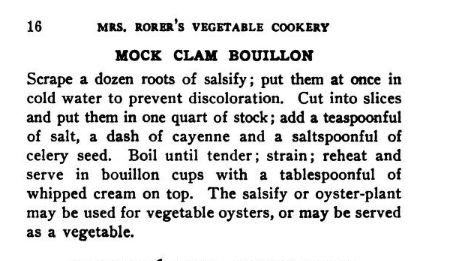
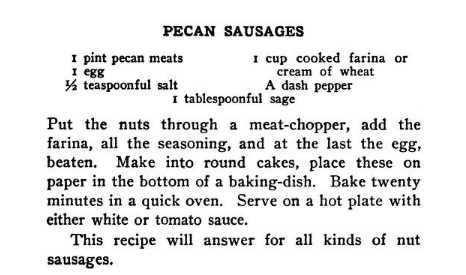
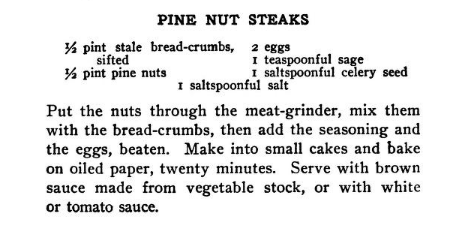
Posted By: Paul - Wed Apr 21, 2021 -
Comments (2)
Category: Food, Vegetarians and Vegans, 1900s, Nausea, Revulsion and Disgust
| Get WU Posts by Email | |
|---|---|

| Who We Are |
|---|
| Alex Boese Alex is the creator and curator of the Museum of Hoaxes. He's also the author of various weird, non-fiction books such as Elephants on Acid. Paul Di Filippo Paul has been paid to put weird ideas into fictional form for over thirty years, in his career as a noted science fiction writer. He has recently begun blogging on many curious topics with three fellow writers at The Inferior 4+1. Chuck Shepherd Chuck is the purveyor of News of the Weird, the syndicated column which for decades has set the gold-standard for reporting on oddities and the bizarre. Our banner was drawn by the legendary underground cartoonist Rick Altergott. Contact Us |
